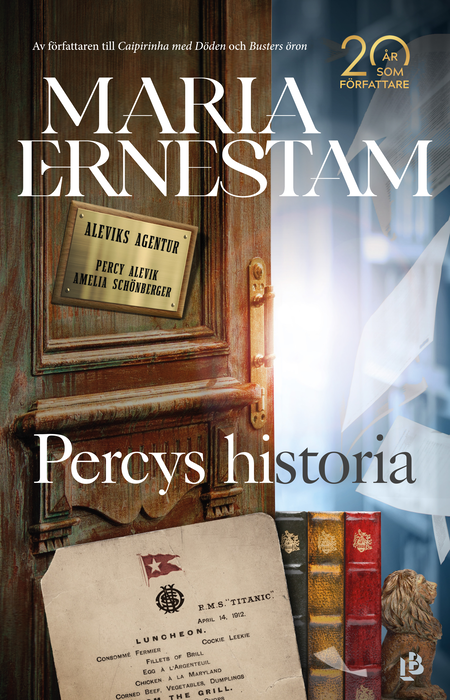
Percy's Story
It is the Easter holiday and Viola, her husband Axel and their two teenage daughters go down to Skåne, where they have borrowed a house not far from a retirement home where Axel’s mother is living.

It is the Easter holiday and Viola, her husband Axel and their two teenage daughters go down to Skåne, where they have borrowed a house not far from a retirement home where Axel’s mother is living.
During her visits to her mother-in-law, Viola meets an old lady, Lea, who gives her a few novellas she has written. These evocative stories become a refuge during the tumultuous days that follow in the disused house. Since Axel first started sickening four years earlier he’s changed, and now everything deteriorates even more.
At the same time as Viola begins to sense the underlying truth of Lea’s stories, she realises she is actually afraid of her husband. Who is he? And does she still love him?
On the Other Side of the Sun is a powerful novel about lies and deceit, love and sorrow. And about a dramatic human destiny in China, during the Civil War.
A positive review is always a pleasure. These ones made me really happy.
When she is close to her main character’s experience the prose is often subtle and gently suggestive. Ernestam creates a fine balance between Viola’s words and the reader’s mental images. …in her concern for the language and feeling for the importance of detail Ernestam shows her insights as a psychological realist. SvD
Can one win an Oscar, a BAFTA or a Grammy for the most beautiful prose style? If so, Maria Ernestam clinches it. I’d fall on my knees in a pool of mud for her words, deliciously entwined throughout this tale set in Skåne. A journey uncovers a family’s destiny, taking a detour via China. Properly worked through and worth reading. Kupé
Many times Maria Ernestam’s authorship has its feet thrust deep into the mud of ordinary existence, yet with a startling imagination that flies through the air. ‘On the Other Side of the Sun‘ is no exception. Again she shows her commitment to writing about ordinary human beings in a way that makes the narrative both stirring and mysterious. Irrespective of the choices she makes, Maria Ernestam knows the art of telling a multi-layered story. And she remains as one of my unrivalled favourites in Swedish writing. Nerikes Allehanda
Maria Ernestam’s first few books were much talked about because of their well-written use of literary burlesque. In her latest she changes the tone and terms of reference by confronting the eternal questions of love, sorrow and loyalty both towards those who are close to us and in relating to our own conscience. Further intensity comes out of the fact that the novel is to some extent factually based on actual events in the author’s family background. This is a story with both depth and content and epic largesse. It concerns solidarity between women, shared pain and loyal support far beyond the generation divide. Also fantastically well rendered with a fine sense of the aesthetics of our language. Read it! Växsjöbladet/Kronobergaren